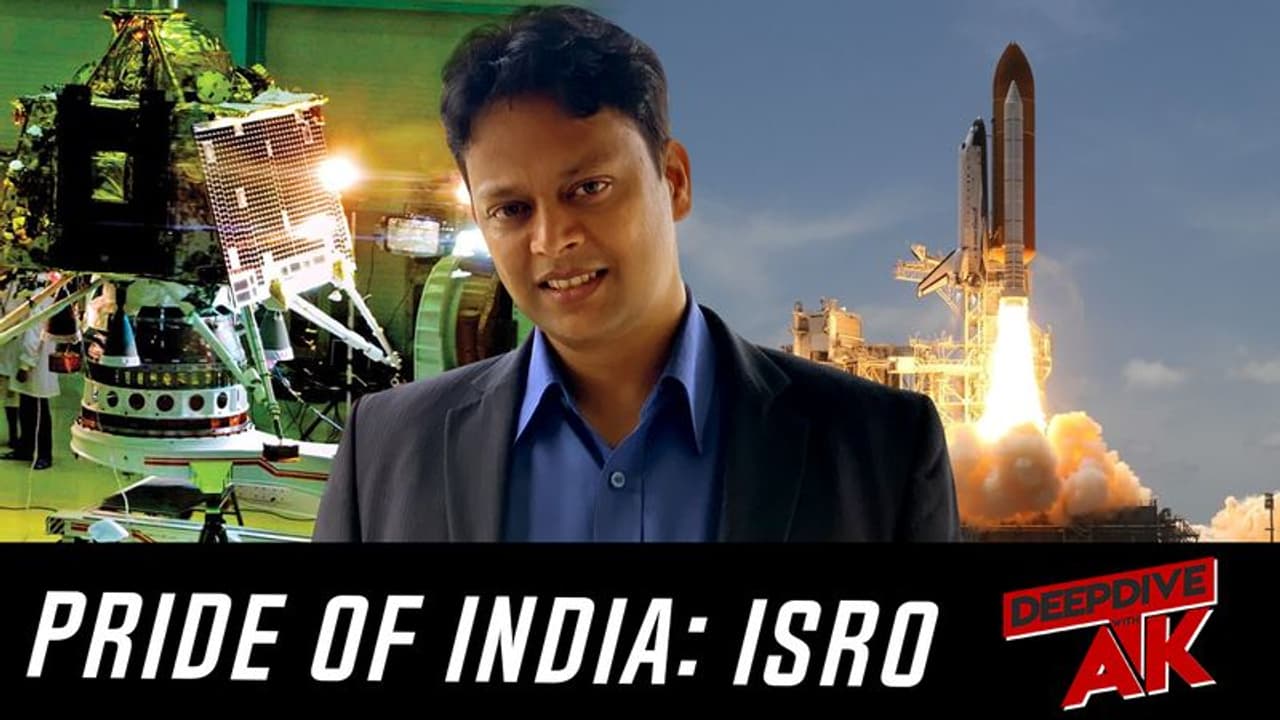Vikram Sarabhai's birthday comes just weeks after India successfully completed its mission to the moon via Chandrayaan 2. Abhinav Khare deep dives into some of the amazing achievements of ISRO.
Today, we celebrate the 100th birth anniversary of the father of India’s space program, an exemplary scientist and innovator, Vikram A Sarabhai. His birthday comes just weeks after India successfully completed its mission to the moon via Chandrayaan 2. Till date, India has undertaken 102 missions to space including communication satellites, earth observation satellites, experimental satellites, navigation satellites, satellites for scientific research and exploration, academic studies and other small satellites.
Deep Dive with Abhinav Khare travels back in time to narrate how ISRO superseded Indian National Committee for Space Research (INCOSPAR) in 1969, which was headed by Vikram Sarabhai. In 1970, ISRO came under the department of space. The story of Indian space program is something that the world needs to know, how a country struggling with poverty just after independence managed to shake the world with its space programs.

India was struggling with problems like poverty, hunger, unemployment and illiteracy when Sputnik 1 was launched. So, for it to even imagine having a space program was an extremely long shot. However, on November 21, 1963, the first sounding rocket was launched from Thumba Equatorial Rocket Launch Station (TERLS), which built the base for India’s space program.
The efforts of both the political and scientific leaders of the country bore fruit for the space program. The manpower for this included renowned scientist like APJ Abdul Kalam, R Arvamudan, HGS Murthy, D Easwardas, etc, who were sent to NASA for training. India received help from both USA and Russia in this regard. Despite facing two wars in the 1960s, India did not bow down to the pressure and let its space program continue.
India’s two pronged approach helped it succeed in its space mission:
First, they built a team of excellent engineers, who toiled to make the indigenous equipment and assets.
And second, they collaborated with countries who had progressed in space technology.
Some of the amazing achievements of ISRO are:
Satellite Launch Vehicle, Chandrayaan, Bacteria species, PSLV-C21 rocket, Mars Orbiter Mission, Reaching Mars, GLSV MK3, Launching 104 Satellites Together, GSLV-F09, Navigation with Indian Constellation
Over the past few decades, ISRO has achieved great heights and now time has come for NewSpace to take over. NewSpace is a worldwide phenomenon which focuses on challenging the traditional methods of space programs and deliver cost and time effective technologies for the same. While SpaceX, OneWeb, and Planet Labs are leading this movement, India also has started with a few startups like Team Indus, Earth2Orbit, Astrome Technologies, Bellatrix Aerospace, and SatSure. While the government programs like ‘Make in India’ and ‘Digital India’ have increased interest and investment in this sector, space still involves heavy investment, the answer to this challenge India needs to figure out.
About Abhinav Khare
Abhinav Khare is the CEO of AsiaNetNews Network and also the host of a daily show named Deep Dive with AK. AsiaNetNews is a leading media group of south India with highly valuable brands like AsiaNetNews, Suvarna News, Kannada Prabha, IndigoMusic, Indigo Radio, MyNation, NewsFast, IndigoXP Music lounges.
He is a proud father of two beautiful daughters and resides in Bengaluru with his loving family and a lifetime collection of books and gadgets. An avid traveller, he has already pinged more than hundred cities from 5 major continents around the globe.
A tech entrepreneur, who is passionate about policy, technology, economy and philosophy from ancient India. His favourite pastime is to research synergy between these facets of society. He earned his qualifications from the top 10 global universities; an MS Engineering from the ETH Zurich and an MBA Finance from the London Business School.
